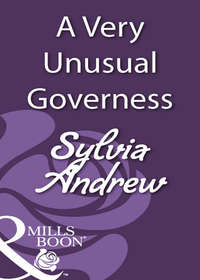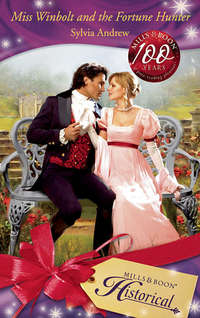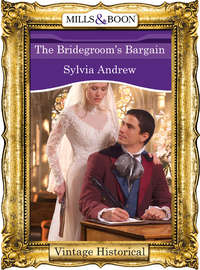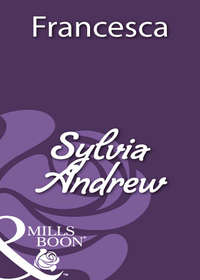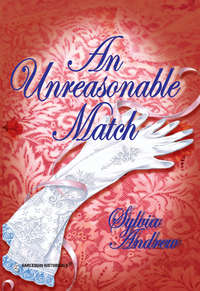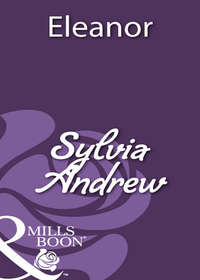
Полная версия
An Inescapable Match
‘Stop! Oh, please handle that more carefully! Give it to me—I’ll carry it!’
Deborah’s urgent cry roused Hugo’s curiosity. What was she so concerned about? He saw that she now had a rosewood box in her arms, about eighteen inches by twelve and six or seven inches deep. She hugged it close, though it was clearly awkward to carry.
‘Let me,’ he said, taking the box from her. He could now see that the top was beautifully worked marquetry of variously coloured woods surrounding a small silver oval with ‘Frances’ written on it. Deborah’s eyes followed the box anxiously as he carried it in for her.
‘I shan’t drop it, nor shall I run away with it,’ he said with amusement. ‘Where shall I put it down?’
‘It will go in my room. Thank you, Hugo—you could put it there until I take it upstairs.’
‘Nonsense, I shall carry it for you. What is it? It looks like a writing-box. Was it your mother’s?’
‘Yes. It’s almost the only possession of hers that I’ve managed to keep. But I refused to let it go…’
‘Why should you?’
She looked at him sombrely. ‘You don’t understand.’
They were interrupted by Lady Elizabeth. ‘What on earth are you doing on the stairs, Hugo? Surely the servants can carry Deborah’s things to her room? What have you there? Oh!’ There was unusual delight in Lady Elizabeth’s face. ‘It’s Frances’s writing-box! I have one just the same! Come and see!’ She took them into her little parlour at the back. On a table to one side of the window was a twin of the box in Hugo’s arms. It had the same marquetry top, but this one had ‘Elizabeth’ on the silver name plate. ‘My father had them made for us. He presented them to us as soon as we were able to write a full page of perfect copybook writing.’ She smiled fondly. ‘Frances had a hard time getting hers. She was always too hasty, and there was usually a blot before she had finished. But she managed in the end. What do you keep in it, Deborah? I keep recipes in mine!’
‘I… I have some letters. Letters from my mother, and correspondence between my mother and my…my father.’
The pleasure faded from Lady Elizabeth’s face. ‘I see. Of course. Well, give it to one of the servants to take upstairs.’
‘I have it now, Aunt Elizabeth. I’ll take it,’ said Hugo. ‘Is Deborah using her old room?’
‘Of course. You’ll find Mrs Humble up there. Come down straight away again, Hugo. You’re no longer children, and it isn’t fitting for you to be in Deborah’s room.’
Hugo burst out laughing. ‘Aunt Elizabeth! Set your mind at rest. Deborah would never be in the slightest danger from me!’
‘I know that, of course. But the rest of the world may not.’
Somewhat depressed, Deborah followed Hugo up the wide oak staircase. The precious box was deposited on a chest of drawers in Deborah’s room. Aunt Elizabeth was very fond of her niece and had always done all she could to make her feel at home. The Vicarage was large, and Deborah’s room had been given to her when she had first come as a child to Abbot Quincey. It was the same size as those of her cousins, and furnished in the same simple, but pretty way, with plenty of room for small treasures.
Just as Hugo was turning to go, Edwina came in with a vase of flowers in her hand.
‘We didn’t expect you for another two days, Deborah. Otherwise these roses would have been in your room when you arrived. Why did you come so unexpectedly?’
Deborah hesitated and colour rose in her cheeks. ‘I… I was lonely. I couldn’t wait any longer to be with you. But I should have thought it out more carefully, I see that now. I’m sorry if I’ve put you all out.’
While Edwina protested strongly at this and hugged her cousin to prove it, Hugo went slowly downstairs looking thoughtful. Deborah Staunton had always been a poor liar. There was more to her hasty disappearance from her former home than she had so far admitted. He must have the truth from her before very long, and see if she needed help.
After Deborah came downstairs again he took her to see the stable where Autolycus had been housed. The dog was already asleep again.
‘I hope you haven’t been rash in recommending him as a guard dog,’ said Deborah, eyeing Autolycus doubtfully. ‘He’s not really very brave. But thank you for thinking of it. And…and for the rest of your help today.’
‘It was nothing,’ he said. ‘It was quite like the old days. But some time soon I intend to hear the real reason for your sudden departure from Maids Moreton.’
Deborah looked up at him, eyes wide in shock, then she looked away. ‘W-what do you mean?’
‘You mustn’t thank me one minute, then treat me like a simpleton the next, Deborah, my dear,’ he said pleasantly. ‘I am not as gullible as the twins. If you had waited another forty-eight hours you and Nanny Humble would have travelled at your ease in a carriage sent by Uncle William. As it was you came in a dogcart—not the most comfortable of vehicles. Moreover, the dogcart had been hired in Buckingham—two miles away from your old home. It’s natural to wonder why. Also, you hired it, even though you knew you didn’t have enough money to pay the full charge. Such desperation doesn’t arise from loneliness or a simple lack of patience, my friend.’ He looked at her gravely, but she remained silent. He went on, ‘And then there is the matter of your aunt’s equally hurried return to Ireland. Is it all connected?’
She looked at him in dismay. ‘I… I can’t tell you, Hugo.’
‘Not now, I agree. But you’ll confide in me before long. Good night, Deborah. Try to keep out of trouble for the next week. We shall all be busy with preparations for the fête.’
‘The annual fête! I’d forgotten all about it. We used to have such fun at the fête… I’ll do my best to be good, Hugo.’ She made a face. ‘Though my best doesn’t always seem to work… I’ll certainly be extra careful, I promise—and the twins are very good to me—they’ll help.’ She sighed. ‘They don’t know how lucky they are—they seem to know how to behave without even trying!’
Hugo nodded, smiling fondly. ‘They certainly do. As well as being pretty… Very pretty. The two of them together are indeed a striking sight. They would cast a number of accredited society beauties quite in the shade.’
Deborah’s heart sank. Hugo really was becoming serious. She said hopefully, ‘Perhaps Robina will introduce them to the Ton after she is married? I’m sure they would be a success.’
He frowned. ‘Perhaps… Though I’m not sure it’s at all necessary. They are so unspoilt, it would be a pity if… Well, we shall see, we shall see. They may well find suitable partners here in Northamptonshire.’
When Hugo wasn’t being the kindest man she knew, thought Deborah in exasperation, he was far too lordly! It was obvious to her that he had now decided that one of his cousins would make a suitable wife and assumed that all he had to do was to decide which one. Such arrogance! It would serve him right if neither would accept him—but she couldn’t imagine that would happen. She suddenly felt weary beyond measure.
‘Good night, Hugo,’ she said and turned to go. Then, to her astonishment, Hugo put his hands on her shoulders and pulled her nearer. He kissed her on the cheek.
‘Don’t lose heart,’ he said. ‘Things will be better for you now. We are here to look after you.’
‘Thank you.’ Deborah could not have said anything more. Hugo’s nearness was playing havoc with her emotions. Delight, despair, an almost irresistible impulse to reach up and bring his head round so that his lips could meet hers… She stiffened and withdrew. Such wanton behaviour would shock him to the core. What was worse, he would be embarrassed and uncomfortable, too. She knew how he thought of her, and it was not as a man thinks of a possible wife. ‘Deborah would never be in the slightest danger from me!’ he had said to Aunt Elizabeth, laughing at the very idea. It had hurt, but it had not surprised her.
‘Good night, and thank you once again.’ She turned and went into the house.
Hugo slowly walked back to the Hall. He was puzzled. The impulse to kiss Deborah Staunton had taken him by surprise, but he supposed it had been a natural one. She had looked so forlorn, and he had frequently comforted her in the past. But what astonished him was that once she was in his arms the simple desire to comfort had changed into something much more dangerous. The feel of her fragile bones beneath his hands, the look of helplessness in those dark, indigo eyes, had been unexpectedly seductive. He had been within a hair’s breadth of kissing her in real earnest. Kissing little, penniless, hopelessly disorganised Deborah Staunton! And then she had, quite understandably, stiffened and pulled away and the moment had passed… He shook his head. Midsummer madness! It would not be repeated.
He firmly dismissed the incident and turned to contemplating his own future. Now that he was based more or less permanently in Northamptonshire, was he going to find the life of a country gentleman intolerably dull? For the last ten years he had lived in the fashionable world, and though he had never outrun his budget he had managed to enjoy most of the delights London had to offer. He was aware that he was known in society as a man of taste and judgement. He had always been a keen sportsman, and through practice and, yes, luck, he had achieved success in most of the activities admired by his London acquaintances. They had been good years…
But he had promised his parents he would settle down when he reached thirty, and that time had now come. He had returned to Abbot Quincey with the fixed intention of marrying, and it seemed to him that either of his twin cousins would make a very suitable wife. The Percevals were a good sound stock—there could be no objection to marriage between cousins. The problem would be which one to choose! He was fond of them both, and they both seemed to like him. Yes, he could do a lot worse. Life with either one of them would be very pleasant…
Might it be dull, perhaps? Possibly, but he would be kept fully occupied with the responsibilities to his family and to the estate he would one day inherit. He and Frederica—or Edwina—would have a sound relationship based on friendship, love for their children and their separate duties. That would be enough. Quite enough. Indeed, excessive feeling of any kind was in rather poor taste—he had usually managed to avoid it. Yes—marriage to someone like Edwina—or Frederica—would suit him very well. Either of them would make an excellent future Lady Perceval. Unlike poor Deborah Staunton… She would lead a man a pretty dance indeed! He would never know what she might do next!
Chapter Three
Deborah had the promised talk with her aunt the next morning, and was so shocked by what she heard that she collected Autolycus and set out to find solitude and peace in the woods surrounding the Hall. She walked along the familiar paths, lost in her own thoughts, until she was roused by excited barks and yelps from the dog. Hugo was walking towards her, Autolycus leaping up at his adopted new master.
‘That damned dog! Down, sir! Why the devil don’t you keep him on the leash until he knows how to behave?’ Hugo said testily. ‘Ill-disciplined dogs are a menace to all! I said down!’ Autolycus flattened himself in his usual posture of abject apology whenever Hugo addressed him thus, and lay quiet. ‘I’ve been looking for you. Edwina told me you had come this way.’ He took a look at her dazed expression. ‘You’ve been crying! What’s wrong?’
Deborah threw up her head and said angrily, ‘I haven’t been crying! I never cry. If my eyes are red it’s because…it’s because I had a fly in one of them.’
‘Let me see.’
‘It’s gone now.’
‘Deborah, tell me why you are upset.’
‘I’m not upset, I tell you! I’m very pleased!’ Deborah took a breath and said more calmly, ‘I’ve just learned that I’m not poor! Not at all! I have an income of a hundred pounds a year!’
‘My poor girl, that won’t go far!’
‘It’s riches, Hugo! I thought I had nothing.’
Hugo fell into step beside her and they walked along the shady path together. ‘Tell me,’ he said. ‘Where has this wealth come from?’
‘Grandmother Inglesham.’
‘The Duchess? I thought that the Ingleshams had cut you all off?’
‘They had. But when she died my grandmother left some money with Aunt Elizabeth to provide an allowance for my mother. One hundred pounds a year. But not before my father was dead. The Duchess of Inglesham was determined not to let Edmund Staunton benefit in any possible way.’
‘So she still loved her daughter, though she couldn’t forgive Staunton!’
‘Loved!’ Her scorn was devastating. ‘It’s not my idea of love, Hugo.’
‘Oh come, Deborah! She did leave her the money…’
‘Money? It’s not the question of money! My mother didn’t care about the money! It was a word from her own mother that she wanted. What sort of love denies any contact with someone who loves you? Sends money through someone else, refuses to meet a daughter who is aching to see you, to have your forgiveness? My poor mother hoped for a reconciliation till the day the Duchess died!’
‘Perhaps your grandmother was afraid of what the old Duke would say?’
‘Pshaw! Real love doesn’t count that sort of cost, Hugo! If I loved someone I wouldn’t let anything or anyone stop me! I would fight to be with them, help them, show them how much I loved them. That’s what I would call love.’ Unaccustomed colour was in her cheeks and her indigo eyes were flashing blue fire. Hugo was fascinated. He could well believe what she said. Deborah Staunton would fling herself into the fray with passion, with no thought for her own good. He wondered what it would be like to love or be loved like that. For a fleeting moment the vision of such devotion was extraordinarily appealing. But then his customary dislike of excessive emotion reasserted itself. He nodded and said calmly, ‘All the same, a hundred pounds a year is not a fortune, Deborah.’
She looked at him with a strange smile in her eyes. Then she said wryly, ‘I know the Percevals do not consider themselves rich. Compared with what they were in the past they might even think they are poor. But you’ve never known what it is to be really poor, Hugo. I don’t suppose it occurred to you when you saw me in London four years ago that I was living on a shoestring.’
‘Then why on earth did your mother send you?’
‘She was worried about my future and hoped that I would find a husband. If I had been able to make a good match it would have solved the chief of her worries. When Mrs Young offered to have me with her for the Season, Mama was delighted. Poor Mama! She was so sure that some gentleman or other would be glad to marry the granddaughter of a Duke. So she sold everything she had left that was of any value and sent me off to London.’
‘It was mad to do such a thing!’
‘It wasn’t very sensible, I agree. It meant that later, when times were hard, she had nothing to fall back on. But Mama was like that. She took the risk because she loved me. She knew that the Inglesham family were to be in London that year for the season, so she wrote to them. I think she hoped that…that they would take an interest in me, once I was there in front of them, so to speak. But they refused even to acknowledge me. And the rest of the Ton followed suit.’ When Hugo gave a muffled exclamation Deborah said fiercely, ‘I didn’t mind! I could see as soon as I arrived that I wouldn’t “take”, as they say—even if I’d had twice as many dresses and jewels and introductions. And the Ingleshams were just the sort of people I disliked most. I disliked London, too. I sometimes thought that you were the only creature in the capital who cared anything at all about me.’
Hugo walked on in silence for a moment, frowning. Then he said brusquely, ‘Why didn’t you tell me this before? After you had tipped us both into the lake I was pardonable angry. It was the last in a whole series of mishaps and I had had enough. But you let me drag you back to Mrs Young’s, ranting all the while, swearing never to see you again and you didn’t say a word—not a word—of all these difficulties! Do you think I’d have rejected you quite so comprehensively if I’d known?’
‘I didn’t want your pity!’ flashed Deborah. Then she gave him a fleeting grin. ‘Besides, as I remember it, Hugo, you didn’t give me a chance to say anything at all! You’re very fluent when you’re in a rage. Anyway, there was little enough you could have done. I’m not sure whether you knew or not, but the morning after that awful episode news came that Papa was ill, and I left London for good.’
‘All the same…’ Hugo was seriously upset, and Deborah tried to comfort him.
‘I didn’t blame you, Hugo. Really, I didn’t. After all your kindness to me I’d disgraced you again. You called it the curse of the Stauntons, and you were right.’
There was silence for a moment, then Hugo said, ‘Are you going to tell me why Miss Staunton left for Ireland so unexpectedly—leaving you to fend for yourself?’
‘I can tell what you are thinking, and once again you’re right!’ Deborah’s tone was bitter. ‘The Stauntons are not at all good Ton. I’m surprised you even bother to talk to one.’
‘Don’t be so stupid, Deborah!’
‘It’s not stupidity,’ she cried. ‘It’s shame! The real reason my aunt left was because she had taken money that wasn’t hers.’
‘What? What money?’
‘Mine! As I learned this morning from Aunt Elizabeth. I thought that the Inglesham allowance had finished when my mother died, but it hadn’t. It was transferred to me—though no one told me at the time.’ Deborah’s voice trembled and she stopped for a moment. Then she went on, ‘For eight or nine months my aunt regularly collected my allowance from the lawyer in Buckingham and said nothing at all about it. I suppose she simply pocketed the money.’
‘So that is why she left so suddenly? You started to suspect her?’
‘Far from it! I might have been puzzled when she packed and left within twenty-four hours, but I kissed her fondly and wished her a safe journey. I was a gullible fool. But she was in some kind of trouble, and I think she was running away from something—or someone. There was a man who called the day before she left. They had a furious argument—I don’t know what it was about, but I heard money mentioned. He left in the end saying that he would be back. She packed her things and departed early the next morning.’
‘With no thought for you?’
‘Well, before she went she did advise me to leave Maids Moreton as soon as possible. And I did.’
‘Did you see this man again?’
‘No. And I didn’t want to. He was dressed like a gentleman, but he didn’t behave like one. He frightened me.’
‘Have you told Aunt Elizabeth about this man?’
‘No! And I’m not going to!’ She clutched his arm. ‘Hugo, you mustn’t mention it either. It’s not as if I’m not in any danger, and…and the whole shameful episode is better forgotten.’
‘There’s no need to ruffle your feathers and stare at me so fiercely. I think you’re right. There’s no reason to upset Aunt Elizabeth. This man, whoever he is, is unlikely to come here. And I don’t suppose your Aunt Staunton will want to show her face again, either.’ At the touch of contempt in Hugo’s tone Deborah turned her head away in shame. She gave a sob. He swore under his breath and pulled her into his arms.
‘Don’t let it hurt you so, Deborah. Your aunt’s deceit must have been a blow, but you must forget her now and be happy here.’
‘But we all tr-trusted her, Hugo! She…she was f-family—my father’s s-sister. My m-mother l-loved her.’
Hugo held her tight, her face against his chest, while she wept away a hopeless mixture of feelings—sorrow, outrage, shame, a bitter sense of betrayal and, perhaps more than anything, a sense of relief after months of tension and deprivation which had followed her mother’s death—deprivation which she would have been spared, if only her aunt had been honest. It was all perfectly understandable, but Hugo had never seen Deborah give way so completely, and it twisted his heart.
‘My poor girl! What a time you’ve had!’ He let her cry for a moment and when she grew calmer he said, ‘But think of your inheritance! I see I must be prepared to fight off the fortune-hunters, now that you’re a woman of substance.’ A watery chuckle told him that his nonsense had succeeded in diverting her. She pulled away and looked up at him, her face beginning to dissolve into laughter. Sunshine always followed swiftly after cloud with Deborah. He was filled with admiration at her courage, at her refusal to be daunted for long by the blows that life had dealt her. It seemed very natural that he should hold her like this, and his arms tightened round her. So often in the past he had held her so—after a fall from the apple tree, a slip on the stepping-stones over the stream, the death of some little animal she had befriended. Deborah had always come to him for comfort. And he had always found it surprisingly easy to talk to her.
After a short moment Deborah released herself. ‘Thank you, Hugo,’ she said, mopping her eyes. ‘You are very good to tolerate such a watering pot. I’m sorry I gave way quite so completely—it suddenly seemed just too much. I feel better now.’
They walked on in a companionable silence. Summer was at its height, and the oaks and elms, the ash trees and alders were in full foliage. Autolycus ran to and fro, rummaging in the undergrowth, leaping back with a startled yelp when a rabbit popped up out of its hole and as quickly disappeared again, chasing a squirrel with enthusiasm, only to bark with frustration when it sought refuge in a tall tree. Deborah occasionally made a short foray to gather some flowers, leaves and seed-heads, and when Hugo asked about them he was told of their properties.
‘I am surprised that you have to ask, Hugo! I suppose in London you merely called in the pharmacist when you had various aches and pains. Here in the country we make our own, and the woods and hedgerows are full of all kinds of remedies.’
‘I don’t remember that I ever had to call anyone in.’
‘Oh? So you’ve never had sprains and bruises during all those gentlemanly pursuits? You’ve been fortunate!’
He laughed. ‘Of course I have, you little shrew. What would you have done for me? Given me one of those?’
‘No, I’d use comfrey for any sprains and that doesn’t grow here. I’d have to go to the other side of the village for it. Agrimony is found there, too—that’s good for gout.’
‘Thank you, but I am not a victim yet. What do you have there to help me?’
‘This is burdock, which is good for burns, betony to help your digestion, bugle to cure dementia after drinking…’
‘How useful!’ Hugo interposed drily. ‘That yellow one is weaselsnout, isn’t it?’
Deborah pulled a face at him. ‘Hugo! Is that what you call it? It has a much prettier name—and a wonderful reputation.’
‘Oh?’
‘It’s called yellow archangel, and the herbalists claim that it “makes the heart merry, drives away melancholy and quickens the spirits”. What else could one ask for?’
‘What indeed? Perhaps I should call you weaselsnout, Deborah. You often have the same effect.’
‘Hugo!’ Deborah protested laughing, not sure whether she was flattered at his compliment or not too pleased about the name.
‘Do you know all the plants?’
‘On the contrary. I am an ignoramus compared with Lavender Brabant!’
‘What? The Admiral’s daughter? Lives in Hewly Manor? I don’t think I’ve exchanged more than two words with her in my life.’
‘Years ago, when I stayed with Aunt Elizabeth, I sometimes met Lavender in the woods. She taught me the little I know—I think she can recognise every plant that grows round here. I’m not surprised you haven’t spoken to her—she’s somewhat elusive. A recluse, like Hester.’
‘Ah yes. Hester…’ He walked on in silence for a moment.
‘You’re worried about her, aren’t you, Hugo? What do you think she will do? About Lord Dungarran, I mean.’
‘My sister is famous for her stubbornness, but I think… I hope she might eventually give in. Dungarran can be very persuasive. He was saying something last night about taking extreme measures. I don’t know what they can be, but I hope he doesn’t intend to carry her off. I don’t see him as a latterday Lochinvar, and only extreme youth could excuse such dramatic behaviour. Oh, it’s all rather ridiculous. What a pair of fools they are!’


